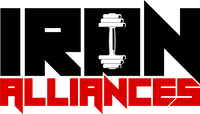
Are you training hard but not seeing results? You might be doing too little—or even too much. Understanding your Minimum Effective Volume (MEV) can help you grow faster while avoiding unnecessary fatigue.
Want expert coaching for your training or diet? Get matched with a coach now.
Minimum Effective Volume (MEV) is the smallest amount of training volume needed to produce measurable progress in muscle growth. In simple terms: it’s the least you can do and still grow.
Volume is typically measured in “hard sets” per muscle group per week. For example, if you do 3 sets of bench press and 2 sets of dips, that’s 5 sets for chest. If your MEV is 8 sets, you won’t make gains unless you increase the workload.
Training below your MEV leads to stagnation. Training way above it creates excess fatigue without better gains. MEV helps you find the minimum dose that still works—perfect for recovery phases, busy weeks, or when minimizing fatigue matters.
MEV is individual. But here’s a general range for most trained lifters per muscle group per week:
If you’re not seeing progress with your current volume, increase weekly sets by 2–3 and track your results over 2–3 weeks. Strength gains, pump quality, and soreness can all help you dial in your MEV.
MEV is ideal during maintenance or deload phases, travel, stress-heavy periods, or when managing fatigue. It’s also a great baseline if you’re prone to injury or burnout from high-volume training.
It’s not ideal forever. To maximize hypertrophy, most lifters should operate closer to their Maximum Recoverable Volume (MRV) in peak blocks, not MEV.
These terms often get confused. Here’s the breakdown:
Good programming uses all three at different points of a mesocycle.
Don’t train blindly. Know your MEV. Use it strategically to minimize fatigue and make your training more efficient. And if you’re not sure how to apply it, get help from a coach who knows how to individualize your plan.
For a deeper dive on fatigue and progression, check out our post on Signs You’re Training Too Hard.
For expert input on programming volume, we recommend this evidence-based guide from Revive Stronger.